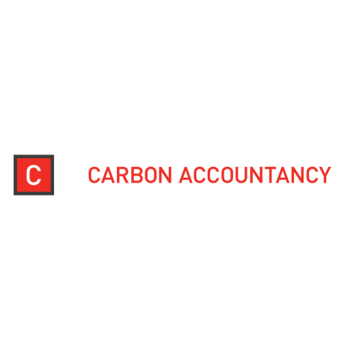Recent
Business Mondays - Carbon Accountancy's "Santa CEO" John Leyden
16 December 2020
London EC1A Community Project
16 July 2020
What Lies Ahead For Accountancy Firms Large & Small?
23 June 2020
How retailers and their suppliers can prepare for the coming year – Corona crash and Brexit combined
29 May 2020
Incubeta Ignite Virtual Learning Series - Carbon Accountancy 15% discount
4 May 2020
The Carbon Accountancy Guide to Income tax on Rental Income & Furnished Holiday Lettings
1 April 2016
When considering the letting of an existing or recently acquired property it is important to understand the tax implications. This guide sets out the general rules applicable to most landlords of residential dwelling house and furnished holiday lettings in relation to tax. It is not intended to be a substitute for proper professional advice from your accountant or tax adviser.
1. Rental Income
Income Tax
The rent that you receive from letting properties is usually treated as unearned income by HM Revenue & Customs irrespective of your employment or self-employment status. You will be liable to pay Income Tax, but only on the profit generated from your property. To calculate your profit you are entitled to claim certain allowable expenses.
Allowable expenses
HM Revenue & Customs have rules regarding what expenses are allowable for tax purposes. They also expect you to keep records to support the figures entered onto your tax return and retain them for six years. This will help if HMRC were to open an enquiry into your tax return.
Expenses must have been incurred solely in connection with the letting of property. If a cost only partly relates to this you will only be able to claim a part of it.
The most common allowable expenses are:
Interest paid on a loan to purchase the property (mortgage interest) *
Letting agent’s fees
Repairs and maintenance (but not costs of improvements)
Insurance premiums for buildings and contents
Utility bills (gas, electricity and water) - although often these are paid by the tenant
Rent, ground rent and service charges
Cleaning and gardening
Accountant’s fees for preparing letting accounts
Other direct costs such as stationery, telephone calls and advertising
* New changes will be phased in from 6th April 2017 (tax year 2017/18) with transitional rule until 2020/21. During the transitional year, a certain percentage of finance cost will be restricted from deduction as rental expenses. Taxpayer will instead receive a basic rate reduction from individual’s income tax liability.
The common expenses that are not allowable are:
Any costs associated with the buying and selling of the property (stamp duty, legal fees etc.).
Improvements to the property (extensions or increasing the size of the kitchen or bathroom).
The “value” of your own time (for example carrying out your own repairs).
Capital element of any mortgage or loan repayments.
A complex area within this is - when is the expenditure an improvement and not a repair? As a rule of thumb:
If the expenditure is incurred in making good damage arising from the letting of the property, whether by way of repair or replacement to an equivalent modern standard, it should qualify as a deduction against income.
If, on the other hand, it significantly upgrades and improves the property then it would generally be considered of a capital nature. Great care needs to be taken in this area as there have been several tax cases taken to court for a ruling. You should always seek professional advice on any expenditure of this nature.
In addition, if the cost of repairs are incurred prior to the first letting of the property they are considered improvements rather than repairs.
Furnished or Unfurnished properties
If you are letting the property as a furnished let you may also be entitled to claim a relief on replacing furnishing, appliances (including white goods) and kitchenware. This reform of Wear and Tear Allowance is in effect from the tax year 2016/17. The old system of Wear and Tear Allowance no longer being available from 5th April 2016. There is no legal definition in tax legislation of what constitutes a furnished property, but HMRC guidance says “sufficient furniture must be provided for normal occupation”. In practice this means beds, chairs, tables, sofas, cupboards, cooker, fridge etc. You cannot claim the initial cost of buying these items but a claim can be made for replacement when they are damaged or worn out provided the amount of deduction is:
The cost of the new replacement item, limited to the cost of an equivalent item if it represents an improvement on the old item (beyond the reasonable modern equivalent) plus
The incidental costs of disposing of the old item or acquiring the replacement less
Any amounts received on disposal of the old item
Losses
If your expenses exceed your income in any year then you have made a loss. There are only limited ways in which you can get tax relief for a property loss. You can set it against a profit from another property that you own. If there are not any profits available you can carry it forward to set against the rental profits (from any property) you make in the future. Rental losses cannot be offset against any non-rental income.
Non-Resident Landlords
If you have rental property in the UK but your usual home is outside the UK, your tenants or the letting agents you use will need to operate the Non-resident Landlord Scheme. They need to deduct basic rate tax from rental income before they pass it onto you. You can set this tax off against your own tax bill at the end of the year.
However you can apply to HM Revenue & Customs for approval to receive your rental income with no tax deduction. This is requested by submitting a form to HM Revenue & Customs stating your current tax situation and obligations. It will be granted if you do not expect to be liable to UK tax for the year in which you make the application and your UK tax affairs are up to date. If you become due to pay income tax you have an obligation to complete a self-assessment tax return and pay the tax due on time.
HM Revenue and Customs may withdraw a taxpayer from the Non-resident Landlord Scheme at any time if you fail to comply with the requirement to file and pay tax on time.
Letting Part of your Home
If an individual lets a room or rooms in his only or main private residence, it is currently possible to claim up to £7,500 (from 6th April 2016) of that income as exempt from tax. To qualify for this the property must be genuinely shared - with full access to the general living areas for the tenant.
Only one exemption can be claimed per property and so if rent is received jointly by more than one person, the exemption must be shared.
If the rent received amounts to more than the exemption of £7,500, it is possible to choose between:
paying tax on the total profit (income less allowable deductions) made from letting the room(s) or
paying tax on the amount of rent over £7,500 (NB: no expenses are deductible if using this option).
H. M. Revenue & Customs must be notified of the decision within one year of the end of the tax year, although the decision can be altered from year to year
2. Furnished Holiday Lettings
There are special tax rules for rental income from properties that qualify as Furnished Holiday Lettings. In general, to qualify as a Furnished Holiday Letting, the property:
Must be situated in the UK or in the European Economic Area
Must be furnished - sufficient furniture provided for normal occupation
Must be available for letting as furnished holiday accommodation for at least 210 days in a year on commercial basis
Must let the property commercially as furnished holiday accommodation to the public for at least 105 days in the year but do not count longer-term continuous let of more than 31 days unless there is a reasonable excuse due to unforeseen situation of the holidaymaker However, if you are unable to let your property for at least 105 days in a particular year, you may have option to averaging election if you have more than one property or a period of grace election if your property reaches the occupancy threshold in some years but not in others. Property in the UK and in the European Economic Area count as a separate businesses and you will not be able to mix and match for qualifying rules. You will need to keep a separate records for each furnished holiday lettings.
Income tax
Although the profits from furnished holiday letting is taxable as normal rental business, Furnished Holiday Lettings are treated as trades so that it will get some trade tax advantages such as;
You can claim Capital Gain Tax reliefs for traders (Entrepreneurs’ Relief, Business Assets Rollover Relief, Relief for Gifts of Business Assets and Relief for Loans to Traders)
The profits count as earnings for pension purposes
You are entitled to claim plant and machinery capital allowance for items such as furniture, equipment and fixtures
The most common allowable and disallowable expenses
In additions to the most common expenses allowable for normal rental business, furnished holiday lettings can benefit from:
Plat and machinery capital allowance for the cost of buying furniture, equipment and fixtures
Full relief on mortgage interest and other associated expenses for whole year
In addition to normal rental business disallowable expenses, where you use the property privately for part of the year, you need to apportion your receipts and expenses on a reasonable basis to disallow the private use.
Losses
Furnished holiday lettings business loss are treated same way as normal rental business loss. You can set it against profits of a later year. A loss in a UK furnished holiday lettings business can only be carried forward against a profit of the same UK furnished holiday letting business. Likewise, a loss on an European Economic Area furnished holiday letting business can only be carried forward against the profits of the same furnished holiday lettings business. You cannot set the losses of one furnished holiday business against the profits of other if you have a UK and an European Economic Area business.
Losses made on an individual furnished holiday lettings may be set against the profits of other furnished holiday lettings profits in the same furnished holiday lettings business. However, losses of a furnished holiday lettings business cannot be set against the profits of a normal rental business.
If you liked our tips on income tax then please view Carbon Accountancy services.
Written by Nimesh Ghimire






